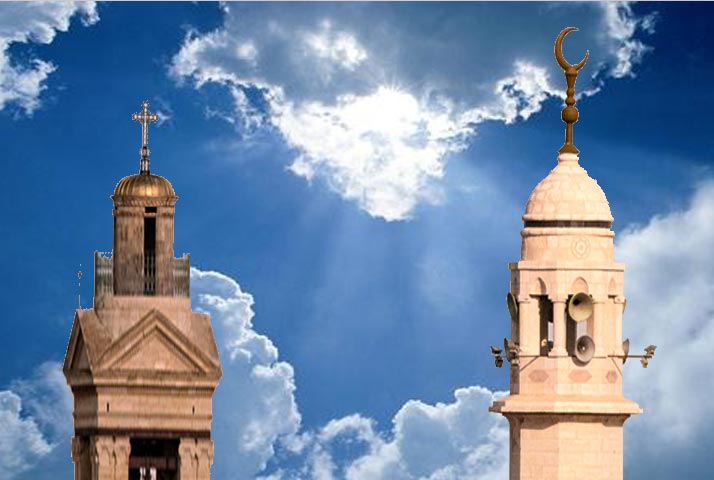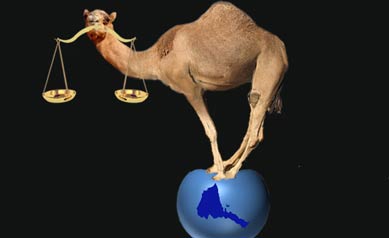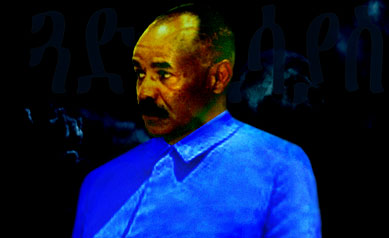Eritreans Must Unite To Overthrow The Dictatorship
As Eritreans, we find ourselves at a cross-road. Our nation is going through a traumatic time; our people are suffering under a tyrannical regime, led by a narcissistic creature. No offense to army sergeants, but as one Sudanese leader put it, Isaias “has the mentality of an army sergeant who thinks he can rule the world.” The series of interviews Isaias gave recently, including the one he gave to a British journalist of Al Jezeera, confirm beyond question, that shrewd assessment. Yet we have been ruled by this man for two decades.
As we keep pointing out to one anther, our country gained its independence, but its people are not free. This is an undeniable fact recognized by most except, of course, HGDEF hangers-on and other beneficiaries of its tyrannical rule. Unfortunately, the opponents of the regime remain divided, causing the greater mass of Eritrean people to become confused and helpless in the face of their tragic reality in which they are victims of a situation beyond their control. In one of my recent writings, I stated that:
“even as the regime is barely surviving, precariously hanging on the balance, the members of the opposition camp are, for the most part, engaged in mutual recriminations and endless squabbles, a condition that psychologists call group regression. This is a phenomenon in which a perceived leadership vacuum causes groups or teams to retreat to less adaptive modes of functioning, pointing fingers at one another instead of focusing on the true adversary.”
This condition of continued division and mutual recrimination is what ails us Eritreans, standing in the way of success in reaching the objective of overthrowing the common adversary. We need to look inwards at ourselves and also outwards at what others have been doing, including our neighbors in North Africa. I wish to address two related issues. One concerns the need for empathy among us, as I have written recently. The other concerns the contentious issue of Hagerawi Wa’Ela.
Let us be Empathetic to One another
One way—perhaps a more fundamental way—of redefining our problem is to declare unequivocally that we have lost the sense of empathy towards one another as a people—as groups, as political parties, “Fronts” or civic organizations. There has been all too often a tendency to rush towards pointing accusing fingers, name-calling and labeling others.
Consider the following samples.
“Ali Omar keeps writing about the discrimination against Muslims; therefore he must be a Muslim fundamentalist.”
“Salim Mukhtar writes about the need of Arabic as a national language; therefore he must be an Alqaida sympathizer.”
On the other side of the religious divide:
“Mehari Adgoi does not believe in Arabic as an Eritrean national language; therefore he is anti-Muslim.”
“Tewolde Araia is a Tigrigna intellectual appealing to unity among Muslims and Christians in order to defeat the common enemy, HGDEF. Tewolde thus submerges the discrimination of Muslims under national unity. Therefore, he must be a Christian/Tigrigna supremacist.”
Let me personalize it a little, coming closer home:
“Bereket speaks about the plight of the new Eritrean refugees, but does not mention the refugees of earlier days who have been stranded in Sudan. Therefore, he lacks balance.”
We can see that labeling a person can be dangerous and patently unjust. We need to ponder the problems associated with labeling and name calling as fundamentally negative and against the ethos of empathy. Name calling, or labeling is part of the armory of social process and of political struggle. The powerful use them to stigmatize and isolate or humiliate the weak; and the oppressed also learn to use them because labels have a powerful mobilizing function. But when overused or used wrongly, they can have deleterious effect—of incitement to serious communal violence as happened in the city of Jos in Nigeria and in Alexandria, Egypt recently. Responsible political leaders and social critics need to take cognizance of this danger and exercise caution and prudence in the use of language.
Empathy means I am a Muslim when a Muslim is victimized or discriminated against. Ahmed Raji’s outstanding work exposing the discrimination of Muslims should tell us non-Muslim Eritreans that we too are affected by the discrimination. We cannot be true to ourselves, to our heritage of the Eritrean “founding myth” if we do not raise our voices against it. Let me be clear on this: to the extent that any of us knowingly allowed discrimination to be committed against our Muslim brothers and sisters and did not raise our voice, we are guilty of collusion. It cuts both ways; I would expect the same ethic to apply to Muslims as well. We are victims of historical circumstances beyond our control, and cannot be blamed for things we did not do. But the Muslim brothers and sisters are now on record telling us, with facts and figures, that they have been treated as second class citizens. Ignoring this would be tantamount to collusion.
I now turn to the current burning question of unity, or rather lack of it. It concerns the Wa’Ela and who should attend it.
The Wa’Ela and Opposition Political Parties
In the past few months, something curious has occurred that should concern all of us. The Eritrean Democratic Alliance (EDA) and some of its constituent members have been engaged in what seems to be an insoluble dispute. It appears to be concerned with membership rights and the number to be allocated to the constituent members concerned inside a Commission that was established by the EDA to prepare a larger Wa’Ela. To be held in Addis Ababa. To be perfectly frank, the seemingly unending feud was so maddeningly tedious that it had turned me off. I turned my attention to research and writing until very recently when I realized that it is not possible to remain uninterested. To start with, there are so many young Eritreans earnestly working hard to bring unity among the feuding parties and factions; and I felt the urge to want to know what was going on. Attempts were made by some groups to mediate between EPDP (newly formed by the merger of EPP and EDP) and EDA. It appears that the mediation attempts did not bear fruit; but I am not sure. Meanwhile the feuding and recrimination continues.
As I understand it, the bone of contention now is the issue of number of seats that EPDP wanted (24) and that EDA did not accept that demand. EPDP withdraws from EA’s membership, but there are individuals that I talked to who seem to think that one solution is for EPDP to join the Commission with a reasonable number of seats awarded to it instead of the 24 that it demanded. What is a reasonable number? That is where the intricacies of Eritrean regional politics begins to emerge, complicated by personality clashes and animosities some of which originates from earlier days. Meanwhile the Commission has forged ahead preparing the ground for the larger Wa’Ela in a few months time.
What is the Commission’s mandate? Here also there are disagreements. Some believe that its mandate includes preparing a draft interim constitution. Others, including a prominent member of CDRiE, believe that this should be left to a later time and that for such a role to be legitimate, it should necessarily involve Eritreans inside the country. Then there is the question of time: is it too late in the day for EPDP members to participate in the work of the Commission, assuming that an agreement can be reached on their membership of the Commission? It seems to me that some formula must be found to accommodate EPDP for them to participate in the process and play a role in the next Wa’Ela, which is expected to be attended by representatives of all opposition groups. The stakes involved in the ongoing dispute and the urgent need for its resolution may affect the fate of a nation. I say this on the strength of my belief that all our opposition groups should have a place at the table where many expect the future of our country is, or will be, debated—i.e. in the next Wa’Ela.
I decided to write this piece because I felt that it is my duty as an elder to offer a mediating solution to obviate (or go beyond) knotty technicalities on who should get how many seats. In my view, the solution to the “dispute” is so simple. I offer the following suggestion and hope that the concerned disputants will accept it in the spirit in which it is made.
- Whatever we may think of EDA, it is the parent organization. Therefore EPDP should be allowed to rejoin EDA and be part of the Commission as legitimate members of EDA. To that end, all concerned should think only of the greater cause—Unity.
- The Commission should accept the admission of EPDP to be a member so that it (EPDP) will have a role in the deliberations of the next Wa’Ela with a chance to influence an optimum and sanguine outcome.
Let us learn from our neighbors and unite to overthrow the dictatorship before it is too late!!
I have written this suggestion on the basis of my understanding of the issues involved. I hope all concerned will consider it in the spirit of the larger cause.





Awate Forum